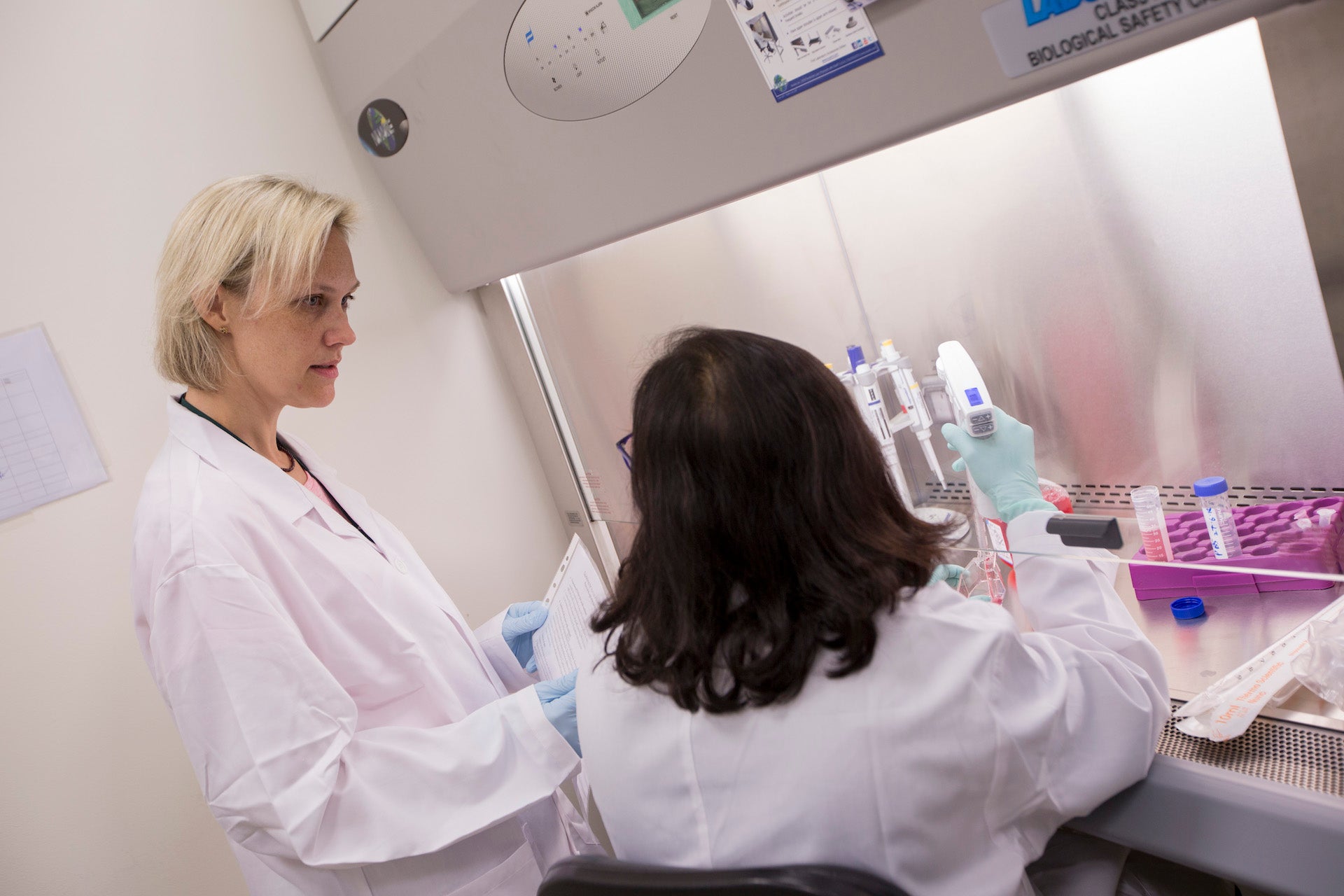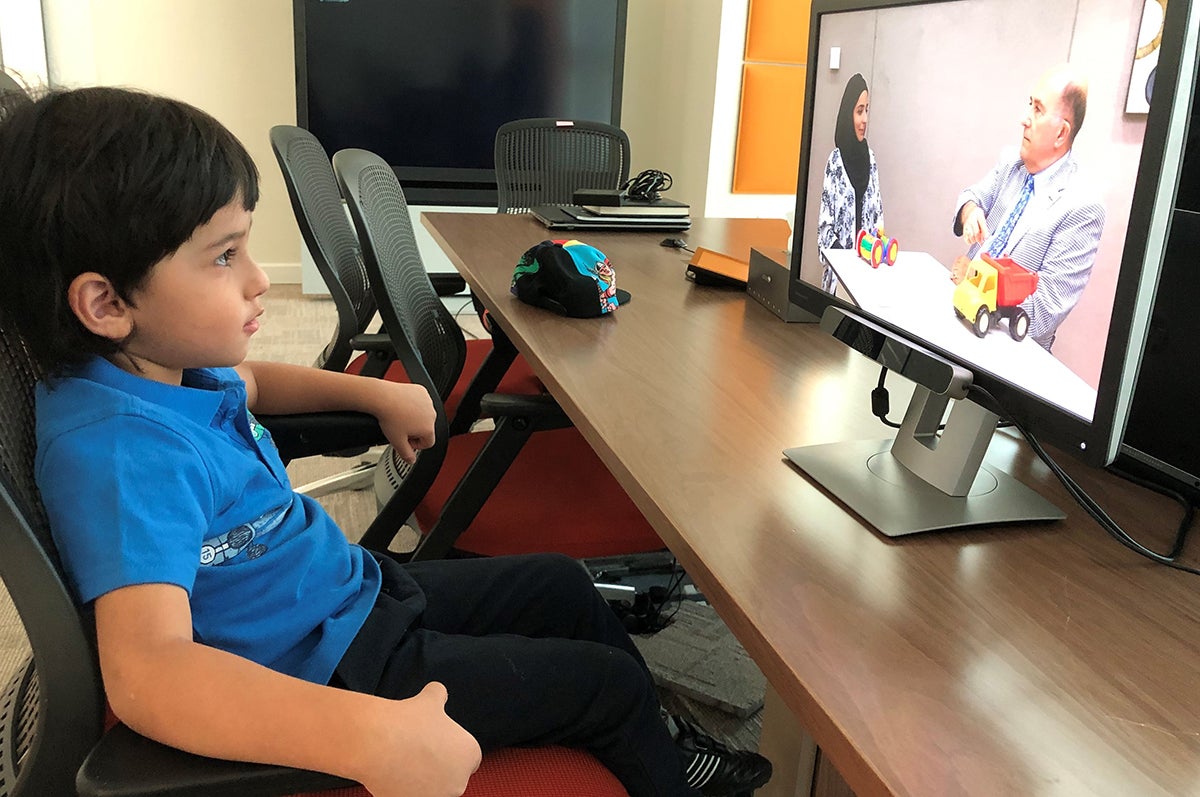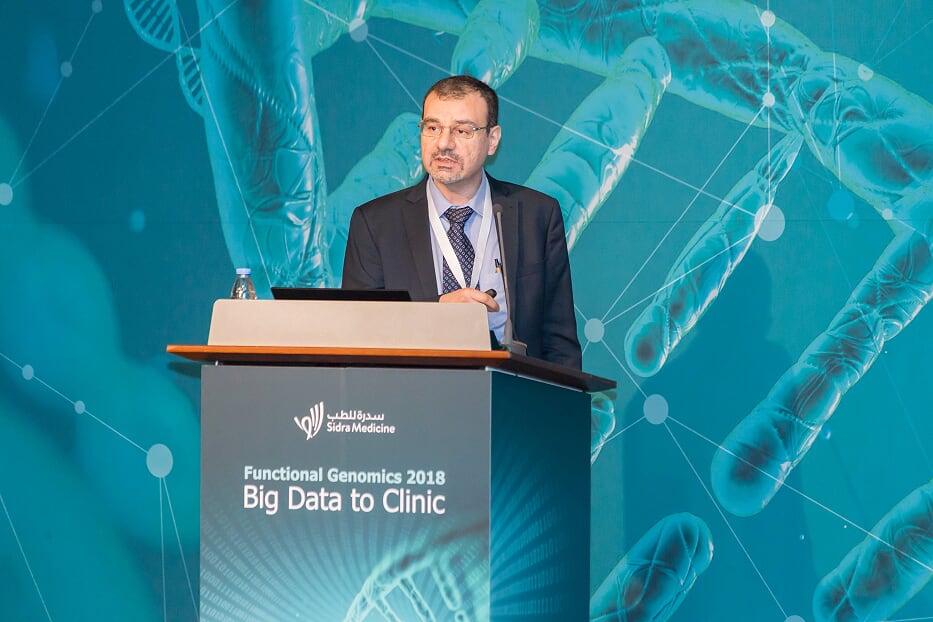
For many years, doctors and scientists have been studying hereditary conditions and genes to understand complex diseases and their treatments. Although medical science has been quite successful in curing illnesses and alleviating disease progression in many cases, there are still areas where questions remain unanswered. For example, some people eat a healthy diet, exercise their whole lives, undergo regular medical checkups, yet die of a heart attack at 40, while others never exercise, eat unhealthy foods, smoke, and live to be 100. Why?
To understand this, researchers are studying human genes and the interactions of those genes with each other, and with the environment. This study is called genomics, and it is helping researchers understand why some people get sick from environmental factors, infections and lifestyle behaviors, while others do not.
Human beings are 99.9 percent identical in their genetic makeup, but that difference in the remaining 0.1 percent is what makes us unique and separates us from each other, while holding critical clues about diseases. Targeted treatment aimed at that unique makeup is called precision medicine or personalized medicine, and is now being used by healthcare practitioners around the world.
“Personalized medicine in Qatar and the Arab region is still in the early stages because it is based on genetic makeup,” says Dr. Omar Albagha, Principal Investigator, Qatar Biomedical Research Institute (QBRI). “What we know in the West doesn't always translate to this part of the world, because our genetic makeup is slightly different. We need to do our own studies to start understanding the genetic makeup of our population, to see what variants are normal, what variants are related to drug response, and what variants are related to diseases such as high prevalence of diabetes.”
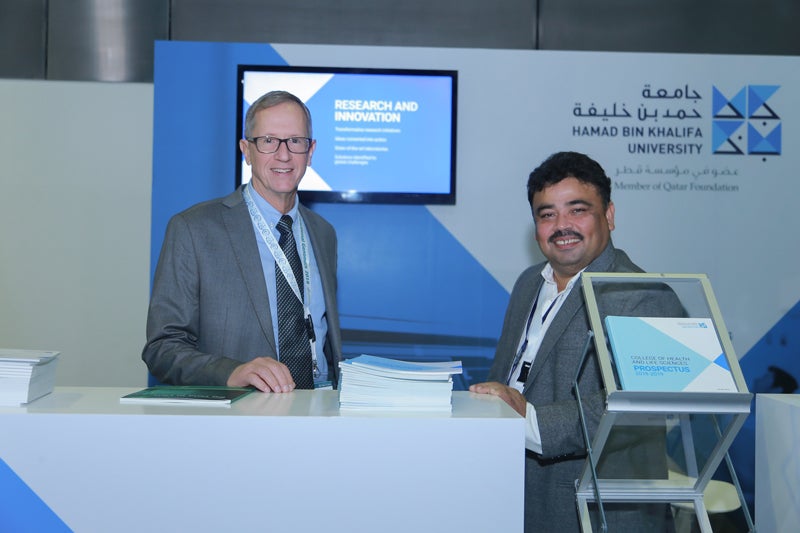 Dr. Albagha was one of the speakers at Sidra Medicine’s fourth annual Functional Genomics 2018 Symposium. On Day 1 of the conference, he spoke on the topic of ‘Genetic Architecture of Health and Disease-related Traits in the Qatari Population,’ and highlighted the contribution of common genetic variations to health and disease traits, as well as the country’s progress towards the utilization of precision medicine.
Dr. Albagha was one of the speakers at Sidra Medicine’s fourth annual Functional Genomics 2018 Symposium. On Day 1 of the conference, he spoke on the topic of ‘Genetic Architecture of Health and Disease-related Traits in the Qatari Population,’ and highlighted the contribution of common genetic variations to health and disease traits, as well as the country’s progress towards the utilization of precision medicine.
“The project I am working on is to understand the genetic contribution to the health and disease-related traits,” he says. “What I mean by a trait is anything that is measured clinically by your doctor. Your blood pressure is a trait, your height is a trait, your body weight is a trait. Your genetic makeup will reflect all these traits, and these traits are very strongly correlated to diseases. We know high blood pressure is strongly correlated to cardiovascular disease. High blood pressure is also a very strong risk factor for diabetes. If your body weight is higher than a certain limit, you are more likely to suffer from obesity-related diseases like diabetes, cardiovascular disease and so on.”
Data collected from the 12,000 individuals sequenced as part of the Qatar Genome Programme (QGP) was presented at the genomics conference. The analysis offered a much deeper understanding of the Qatari and Arab genome, paving the way for regional health providers to eventually be able to offer precision medicine.
“The Middle East region is unique in way that it has an island effect, and all the islands within the region might have differences in their genomics, and so identifying that might allow you to develop which groups are treated with what kinds of therapies,” says Dr. Edward Stuenkel, Dean of CHLS. “We are all very similar, yet different, in terms of our genomics. You can have certain mutations and certain genes that maybe somebody else does not have, and this is what leads to the progression of certain diseases. We need to understand this in order to determine what the best therapies are. Even groups of people might have the same disease, but you might find that the genetics or the omics of one group is different from the omics of another group. This is what may lead to personalized medicine that is different for those two groups. This is where we really get to personalized medicine or precision medicine – when we target the medicine to a particular genomic or group, and this is why it is important for Qatar.”
Considering very little research has gone into understanding the genomics of the Arab region, the ongoing work in the field of genomics and precision medicine in Qatar positions the nation in a unique and significant spot.
The QGP website states that the programme is, “an ambitious population-based project aiming to position Qatar among the pioneering countries in the implementation of precision medicine. With its small population, centralized health care system and great resources, Qatar is well positioned to be an international leader in the implementation of precision medicine.”
CHLS is supporting this ambitious vision by offering four different degree options – two Masters and two PhDs –in Biological and Biomedical Sciences, and in Genomics and Precision Medicine.
“We are one of the first institutes to have these programs within Qatar, and perhaps the region as well,” Dr. Stuenkel says. “Our programs match well with the work that goes on at Qatar Biobank and at QGP, and so we are interfacing quite well in terms of what the country is doing on this initiative. We are trying to train the next generation of scientists to take advantage of all this information that is being produced, so that they can use it in an effective way.”
Through QGP, HBKU researchers and scientists collaborate with fellow experts to align the program with the Qatar National Vision 2030, which is geared towards providing a sustainable future for its citizens.
Related News

Recent research on the health impact of highly processed foods and drinks and the risk of obesity and diabetes
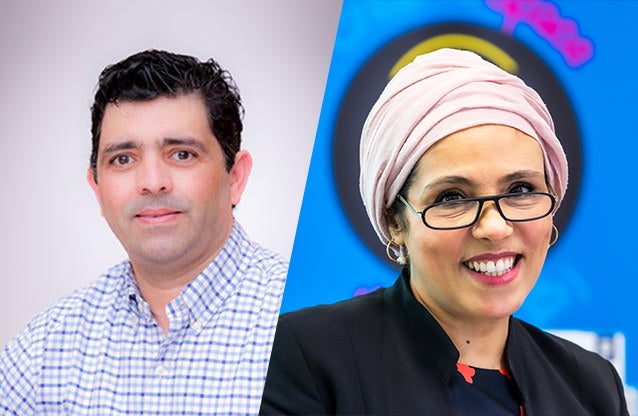
HBKU’s Qatar Biomedical Research Institute and Qatar Computing Research Institute Jointly Publish Risk Tool to Fight Diabetes





